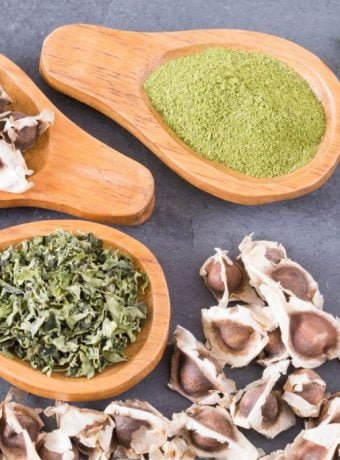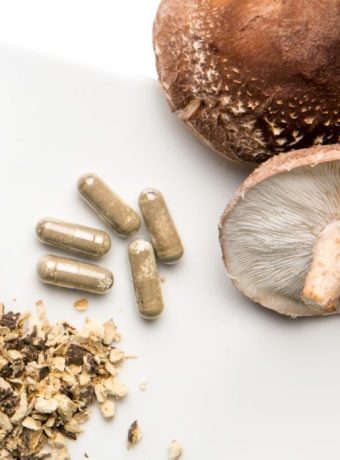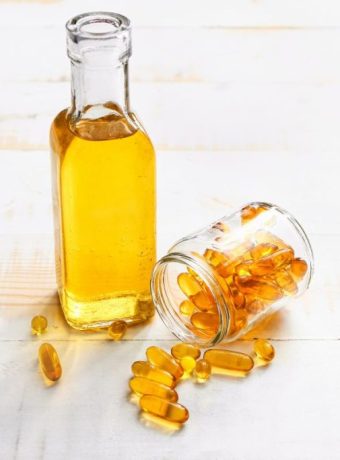7+ Dietary Supplements That Make Living With MS Easier
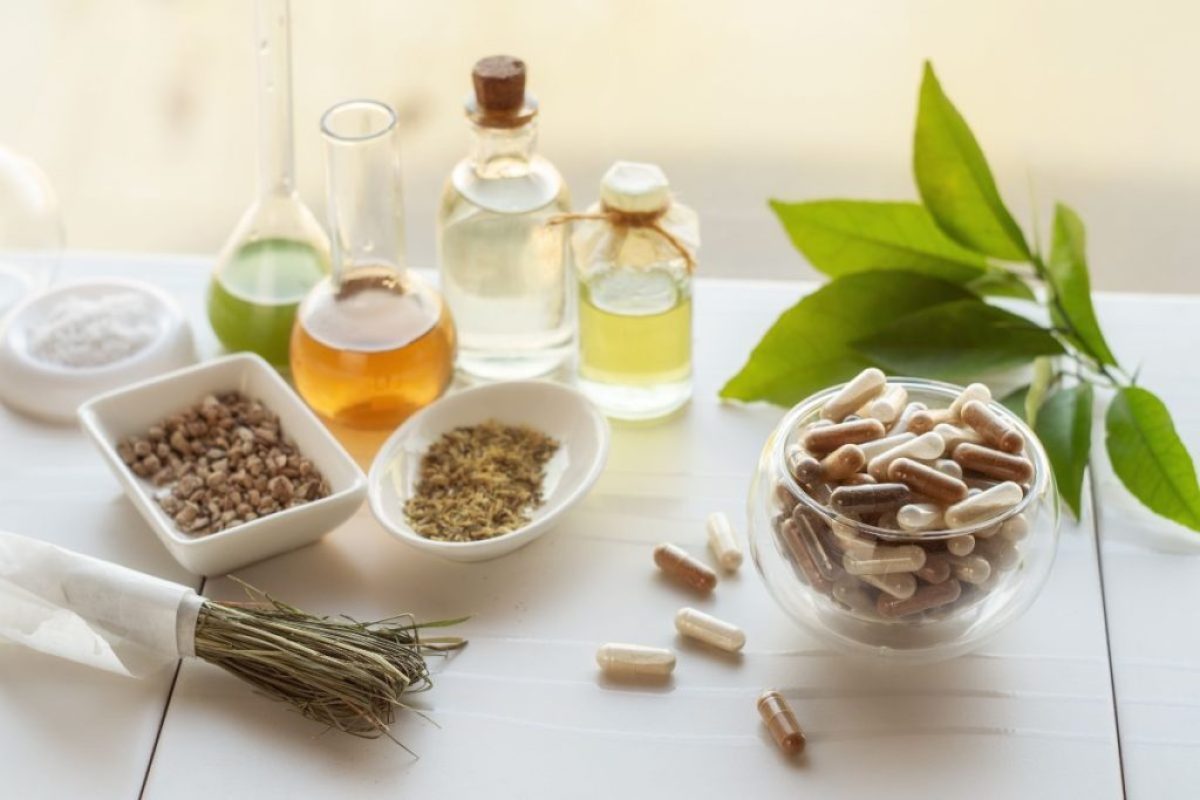
Last Updated on May 31, 2024 by Lauretta Iyamu, PharmD
Multiple Sclerosis (MS) is a long-term illness that affects your central nervous system. It can lead to many symptoms, from mild discomfort to severe disability. While there is no cure for MS, treatments and lifestyle changes can help you manage symptoms and improve your quality of life. Dietary supplements can play an important role [1]. In this article, you’ll learn about the different supplements for MS and their benefits.
What is MS?
Multiple Sclerosis (MS) is an autoimmune disease where your immune system attacks the protective sheath (myelin) covering nerve fibers. This can cause problems in how your brain communicates with the rest of your body [2].
What are the symptoms of MS?
MS symptoms can vary widely and include:
- Fatigue,
- Difficulty walking
- Numbness or tingling
- Muscle weakness
- Problems with coordination and balance
Understanding these MS symptoms is important for managing the disease effectively.
You may like this: Early signs and symptoms of multiple sclerosis.
Diet and MS Management

A balanced diet is important for everyone, but for those with MS, it can greatly affect the disease’s progression and symptom management. Diets rich in fruits, vegetables, lean proteins, and healthy fats provide the nutrients needed to stay healthy and reduce inflammation. This is emphasized in a systematic review of lifestyle changes and complementary therapies for MS [3].
Nutritional Deficiencies in MS Patients
People with MS may have nutritional deficiencies that can worsen symptoms. Common deficiencies include vitamins D, B12, and antioxidants. Addressing these deficiencies through diet and dietary supplements can help.
Learn more about nutritional deficiencies.
Top Supplements for Multiple Sclerosis
1. Vitamin D
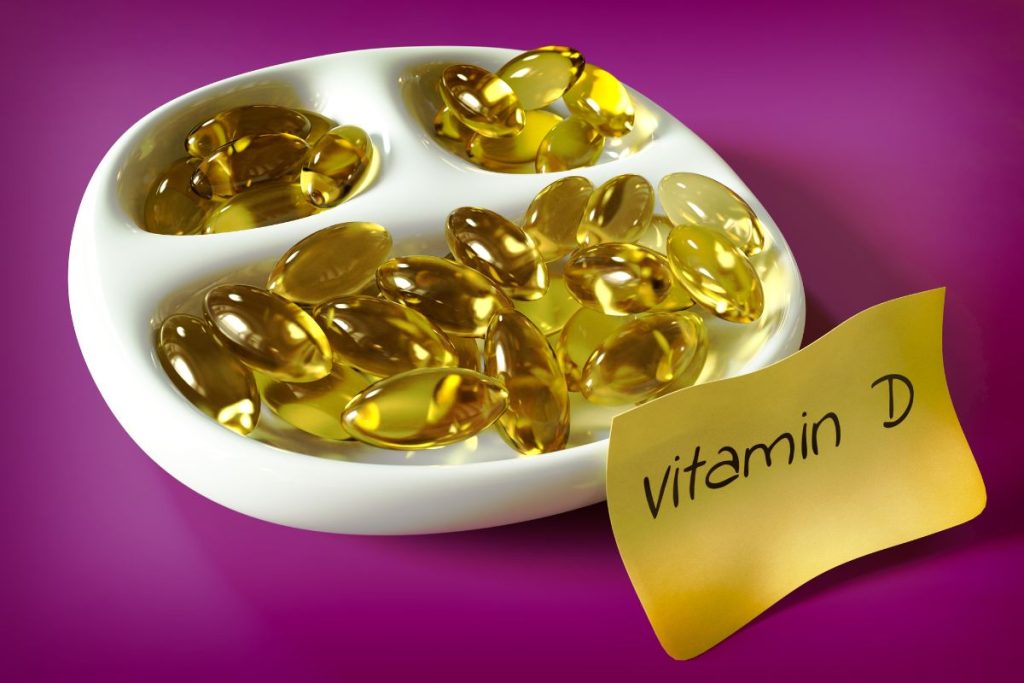
Vitamin D is important for bone health and your immune system. Research suggests that vitamin D deficiency may be linked to the onset and progression of MS [4]. Low vitamin D levels can increase the risk of developing MS.
Recommended Dosage
The amount of vitamin D you need can vary, but many experts suggest higher doses for MS patients. It’s important to consult a healthcare provider to determine the right amount. High doses of vitamin D should be taken under medical supervision to avoid toxicity.
Food Sources of Vitamin D
You can get vitamin D from fatty fish like salmon and mackerel, fortified foods like milk and cereals, and sunlight exposure. Supplements are also a reliable source if your dietary intake is not enough.
2. Omega-3 Fatty Acids

Omega-3 fatty acids, found in fish oil, have anti-inflammatory properties that can help reduce inflammation in MS patients. A systematic review has shown that these fatty acids are important in managing MS [3]. Studies suggest that omega-3s can help ease MS symptoms.
Recommended Dosage
Typical dosages range from 1,000 to 3,000 mg daily, but it’s important to consult your healthcare provider for personalized advice.
Food Sources of Omega-3s
You can find omega-3s in flaxseeds, chia seeds, walnuts, and fatty fish like salmon and tuna.
3. Biotin
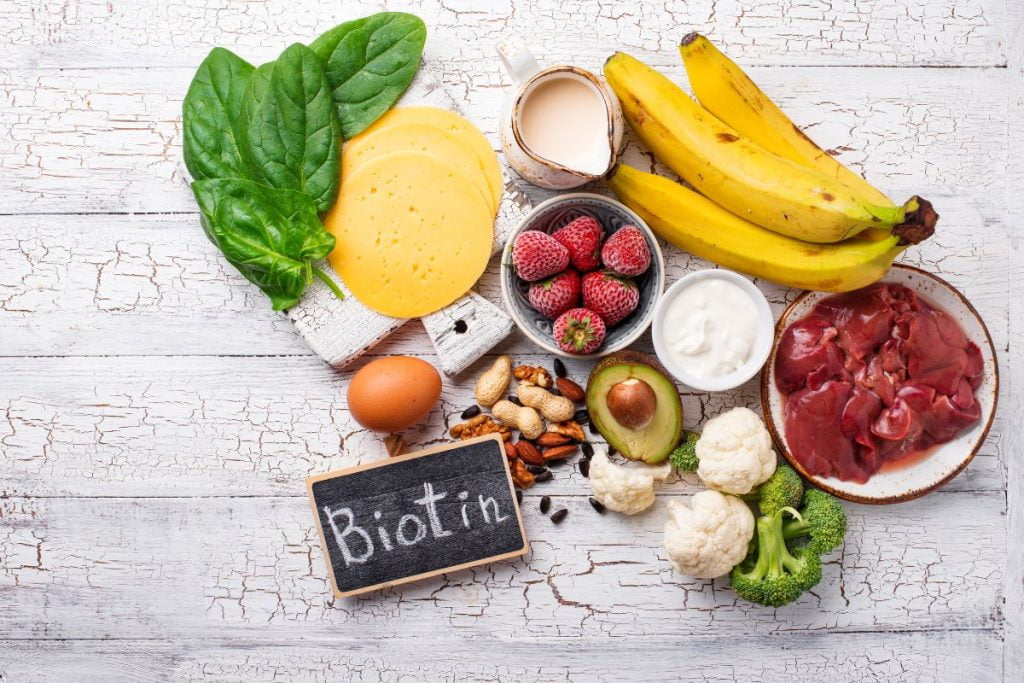
Biotin, a B vitamin, has been studied for its potential benefits in improving myelin repair and reducing disability in MS patients. Research, such as this study on high-dose biotin, suggests its promising role [5]. High doses of biotin have shown positive effects on MS-related disability.
Recommended Dosage
Studies have used high doses of biotin (up to 300 mg/day), but it’s important to consult a healthcare provider to avoid potential side effects [5].
Food Sources of Biotin
Biotin is found in foods like eggs, nuts, seeds, and certain vegetables, such as spinach and broccoli [5].
4. Antioxidants

Vitamins C and E are high in antioxidants that help protect cells from damage caused by free radicals, which may be high in MS.
A study on dietary patterns and MS relapse risk highlights the importance of antioxidants [6]. Antioxidant supplements can support your immune system and overall health.
Recommended Dosage
Consult your healthcare provider for appropriate dosages based on your specific needs.
Food Sources of Antioxidants
These antioxidants can be found in various fruits and vegetables, including berries, oranges, spinach, and broccoli.
5. Probiotics
Recent studies suggest a link between gut health and MS. Probiotics can help maintain a healthy gut microbiome, which may influence inflammation and immune response. The systematic review on lifestyle and complementary therapies discusses the role of probiotics [3]. Probiotics can help improve digestive health and support your immune system.
Recommended Dosage
Probiotic supplements should be chosen based on the specific strains and dosages your healthcare provider recommends.
Food Sources of Probiotics
Probiotics are found in fermented foods like yogurt, kefir, sauerkraut, and kimchi.
6. Lipoic Acid Supplements
Benefits of Lipoic Acid
As noted in recent research, lipoic acid is an antioxidant that has shown promise for reducing inflammation and oxidative stress in MS patients [7]. Lipoic acid can help support your nervous system and reduce MS-related symptoms.
Recommended Dosage
Typical doses range from 600 to 1200 mg/day. Discuss with a healthcare provider before starting supplementation [7].
7. Turmeric Supplements
Curcumin and Inflammation
Curcumin, the active ingredient in turmeric, has powerful anti-inflammatory effects that may benefit MS patients. This study shows curcumin’s potential to reduce MS-related inflammation [8].
Recommended Dosage
Consult with your healthcare provider for the right dosage for you.
Food Sources of Turmeric
Turmeric can be added to food, taken as a supplement, or consumed as tea. Combining it with black pepper can enhance its absorption.
8. Magnesium Supplements
Role of Magnesium
Magnesium is involved in many bodily functions, including muscle and nerve function. It may help reduce muscle spasms and cramps in MS patients.
Recommended Dosage
Your healthcare provider can recommend the appropriate dosage based on your needs.
Food Sources of Magnesium
Magnesium can be found in foods like nuts, seeds, leafy greens, and whole grains.
You may also like this: Other helpful supplements include Mushroom and Moringa supplements.
Lifestyle and Diet for Managing Multiple Sclerosis

Exercise and Physical Activity
Regular physical activity can help manage MS symptoms by improving strength, mobility, and overall well-being. It’s important to choose exercises that are appropriate for your fitness level and physical condition. This systematic review emphasizes the importance of physical activity [3] for MS management.
Stress Management
Stress can worsen MS symptoms. Techniques such as mindfulness, yoga, and meditation can help manage stress levels.
Combining Supplements into Your Routine
Research on following disease-modifying therapies supports adding supplements to your daily routines [5]. However, before starting any new supplement, it’s important to consult with a healthcare provider to ensure it’s safe and appropriate for your condition.
Regular monitoring and adjusting dosages as necessary can help maximize the benefits of supplements while minimizing potential risks.
Conclusion
While supplements are not a cure for MS, they can be important in managing symptoms and improving the quality of life. A combination of a balanced diet, appropriate supplements, and lifestyle changes can provide a comprehensive approach to MS management.
Ongoing research continues to uncover new insights into the role of diet and supplements in MS. Stay informed and work closely with healthcare providers to help you navigate your treatment options effectively.
For more information on vitamins and supplements, visit the Vitamins and Supplements page.
Frequently Asked Questions (FAQs)
Q: What are the best supplements for managing MS symptoms?
A: Some of the best supplements for managing MS symptoms include vitamin D, omega-3 fatty acids, biotin, antioxidants, and probiotics. These can help reduce inflammation and support your immune system.
Q: How much vitamin D should I take if I have MS?
A: The recommended vitamin D dosage can vary, but many experts suggest higher doses for MS patients. It’s best to consult your doctor to determine the right amount.
Q: Can diet really impact my MS symptoms?
A: Yes, a balanced diet rich in fruits, vegetables, lean proteins, and healthy fats can help manage MS symptoms. Proper nutrition supports your overall health and can reduce inflammation.
Q: Are there any natural remedies that can help with MS?
A: Natural remedies like turmeric (curcumin), probiotics, and lipoic acid can help manage MS symptoms by reducing inflammation and supporting gut health. Always talk to your doctor before starting any new supplement.
Q: How can I improve my gut health if I have MS?
A: Improving gut health can be beneficial for MS. Probiotics found in fermented foods like yogurt, kefir, and sauerkraut can help maintain a healthy gut microbiome, which may influence your immune response.
References
- Multiple Sclerosis: Overview and Treatment Options. National Institute of Neurological Disorders and Stroke, https://www.ninds.nih.gov/health-information/disorders/multiple-sclerosis.
- The Pathology of Multiple Sclerosis: The Protective Sheath and Its Demise. NCBI, https://www.ncbi.nlm.nih.gov/pmc/articles/PMC10567645/.
- Lifestyle and Complementary Therapies in MS. PubMed, https://pubmed.ncbi.nlm.nih.gov/35037722/.
- Vitamin D and Multiple Sclerosis: A Comprehensive Review. NCBI, https://www.ncbi.nlm.nih.gov/pmc/articles/PMC5990512/.
- High-Dose Biotin in Chronic Progressive Multiple Sclerosis: A Pilot Study. NCBI, https://www.ncbi.nlm.nih.gov/pmc/articles/PMC10563645/.
- Dietary Patterns and MS Relapse Risk. PubMed, https://pubmed.ncbi.nlm.nih.gov/32701031/.
- The Effects of Lipoic Acid on MS Symptoms: A Clinical Overview. PubMed, https://pubmed.ncbi.nlm.nih.gov/32701031

